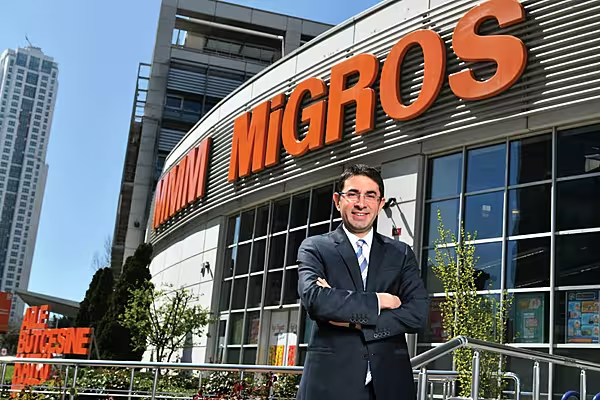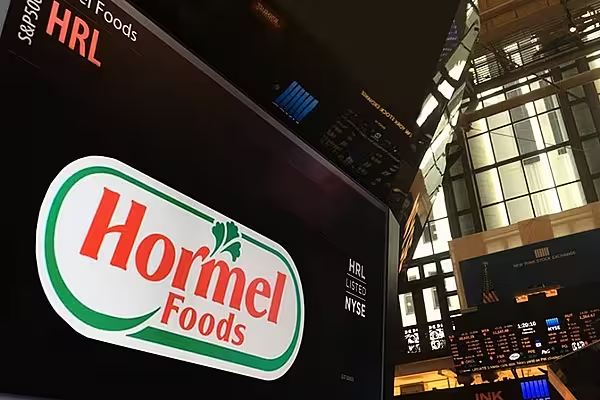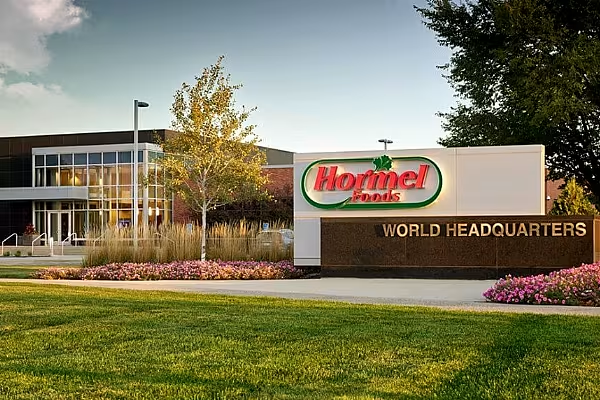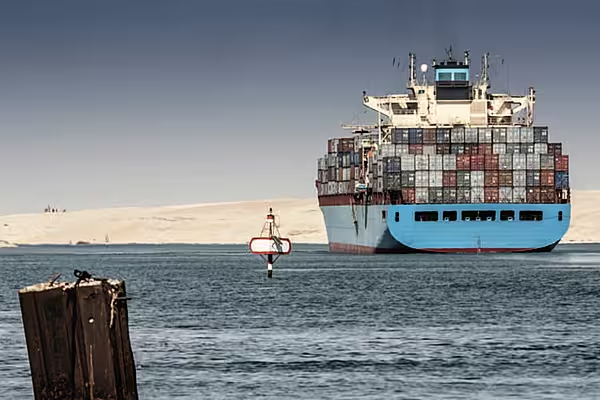Turkey’s economy might be facing challenges, but Migros Ticaret A.Ş. – the country’s second-largest retailer – is well positioned for growth. ESM spoke to the company’s chief executive, Özgür Tort. This article first appeared in ESM Issue 4, 2019.
With food price inflation currently well into double digits, and the economy contracting, you would imagine that it’s not an easy time for Turkish business owners. However, consumers still have to eat, and while the macroeconomic picture remains gloomy, the retail sector is awash with opportunities.
Take Migros Ticaret – the second-biggest retailer in Turkey (after discounter BIM) – for example, which posted 22% consolidated sales growth in full-year 2018, to TL 18.7 billion (€2.83 billion), growing its store count by 238 in the period and breaking the 2,000-store mark for the first time. EBITDA for the year was up by 39.6%.
Migros Ticaret has also been active on the M&A front, integrating former Kipa, Uyum and Makro stores, and embracing both technology and private-label innovation, to give it a point of difference.
It’s an approach that seems to be working – on the back of investments made last year, first-quarter sales rose by 24.9%.
Same-Store Traffic
As chief executive Özgür Tort (recently appointed co-chair of the Consumer Goods Forum, alongside Danone’s Emmanuel Faber) explains, Migros Ticaret has doubled its turnover over the past three years, through a combination of organic and inorganic growth.
“While physical growth of our store network improves our penetration into new households, our same-store traffic increase supports our top-line growth and our efficiency goals,” Tort says.
The share of modern food retail in Turkey is 42% at present, according to Nielsen, presenting “huge potential” for further growth, according to Tort, while the group’s variety of store formats is tailored to the different communities in which it operates.
“We expand our formats based on the availability of locations, as well as physical conditions and customer potential in the relevant regions,” he says. “Supermarkets such as Migros Jet or M Migros enable better penetration in big cities and offer better proximity to the customers. Larger supermarket formats MM and MMM offer the customers a full shopping experience, [while] our 5M Migros stores feature a hypermarket concept.
“Our stores are no longer places where customers simply do their shopping and then leave. They have become living ‘spaces’, where customers can discover new tastes, socialise as they shop, and educate themselves.”
Allied to the group’s bricks-and-mortar portfolio is Migros’s growing e-commerce channel, Migros Sanal Market (Online Market), which is the largest in Turkey and has been in operation for two decades.
“We do not see the physical and digital channels as alternatives. We see them as complementary channels,” says Tort. “There seems to be no rigid demarcation between the physical and e-commerce channels.”
Driving Loyalty
Migros launched Turkey’s first loyalty platform – Money Club – 22 years ago, with the platform now boasting 12 million active users. The advent of digital technologies has enabled the business to develop a range of added-value applications. This includes the launch of the Migros Right Now app, earlier this year, which offers some 3,000 SKUs to buy online, with a 30-minute delivery, and Mkolay, which enables users to scan as they shop.
In addition, some 720 suppliers have also made use of Money Club’s customised data and media platforms to develop bespoke promotional offers for shoppers.
“Life moves very quickly in the new world order,” says Tort. “Consumers are more loyal to brands that offer personalised products, services and promotions. We have been able to adapt to the new era of retail, thanks to our dynamic structure, which is constantly learning, as well as our strong retail experience.”
The retailer has also sought to drive loyalty through private-label development. It has launched a portfolio of store brands and national brands produced under the ‘Exclusive to Migros’ umbrella, which are aimed at providing both optimum price and quality.
“With all our private labels, we position our products as complementary alternatives to branded products, not as competitors,” says Tort.
‘Migros Wellbeing Journey’
Arguably the most successful added-value initiative launched by the retailer has been the ‘Migros Wellbeing Journey’, launched in April of last year.
Using the service, an intelligent algorithm examines a typical shopper’s purchases over the past three months and offers guidance on areas in which s/he could make healthier choices, as well as promotional discounts to assist him/her on his/her ‘well-being journey’.
Tort was among the speakers at last year’s Consumer Goods Forum’s Sustainable Retail Summit, in Lisbon, with the ‘Migros Wellbeing Journey’ initiative one of the most-discussed topics on the sidelines of the two-day event.
“The ‘Wellbeing Journey’ programme reached a broad audience in a very short period of time,” he explains. “Since its launch, in April 2018, until the end of the year, it [...] created awareness about well-being and a balanced diet in 1.3 million customers.”
Growth Agenda
For the coming year, Migros Ticaret is targeting 20% sales growth and a consolidated EBITDA margin of around 6.0%. It is also aiming to grow its store count by 100, investing TL 300 million (€45.65 million) in capital expenditure, and it also hasn’t ruled out expanding its presence in nearby Kazakhstan and North Macedonia, where it operates 45 stores under the Ramstore brand. Sales outside of Turkey currently account for 3% of the group’s turnover.
“We are planning to expand our operations in nearby geographies in the coming years,” Tort says of the group’s aims.
Judging by its current performance in its home market, especially against the backdrop of economic challenges, he has every right to be so assured.
© 2019 European Supermarket Magazine – your source for the latest retail news. Article by Stephen Wynne-Jones. Click subscribe to sign up to ESM: The European Supermarket Magazine














